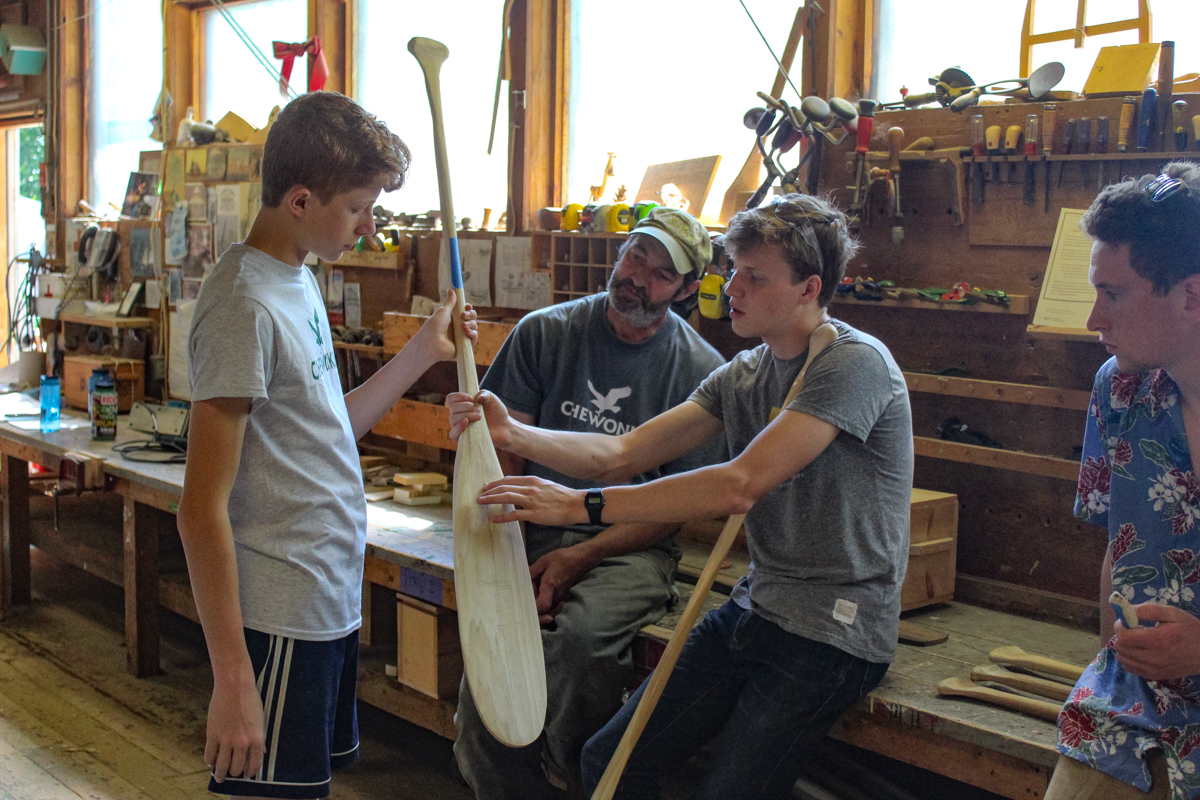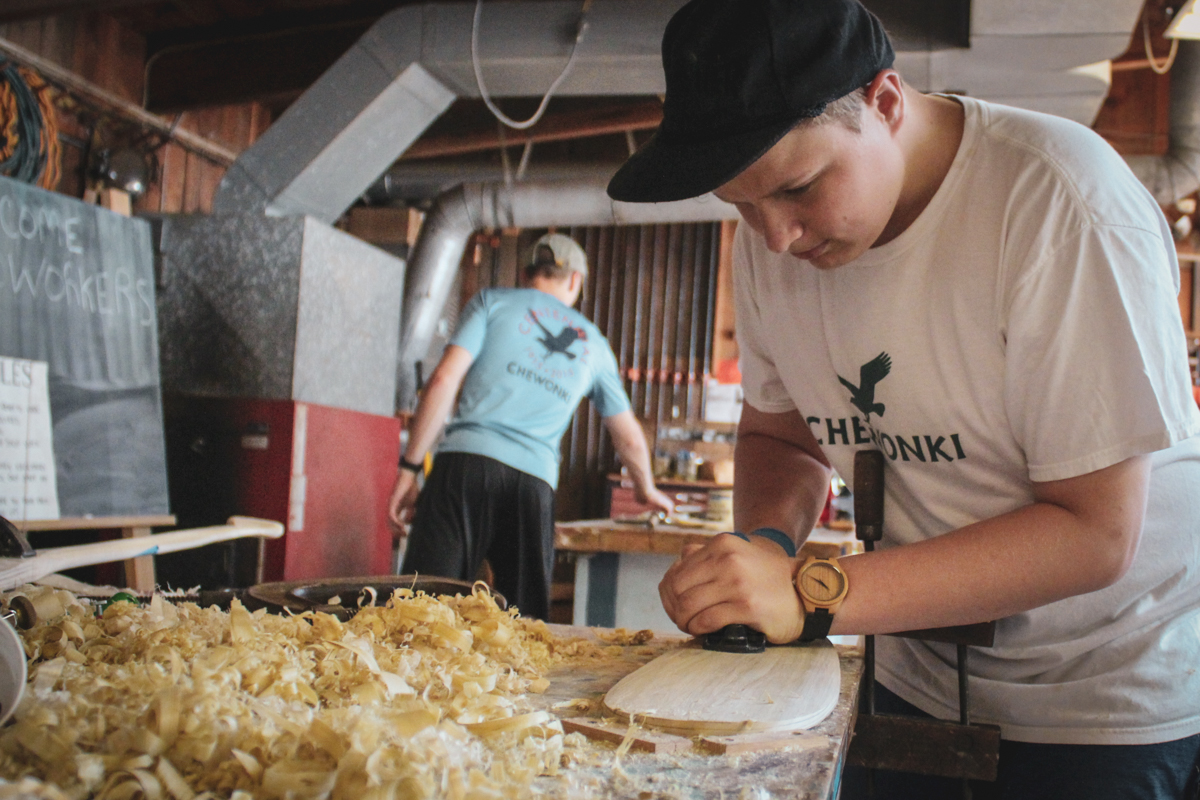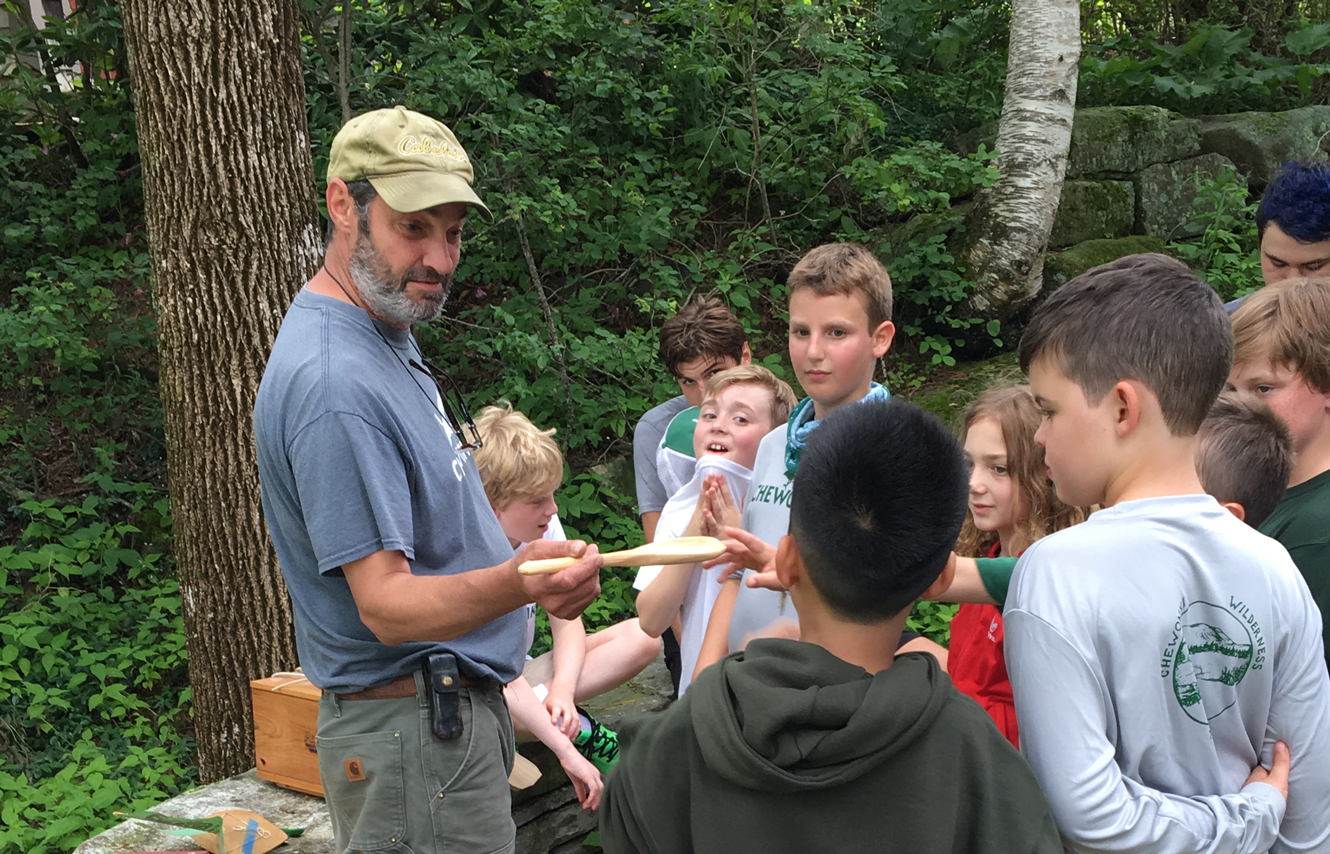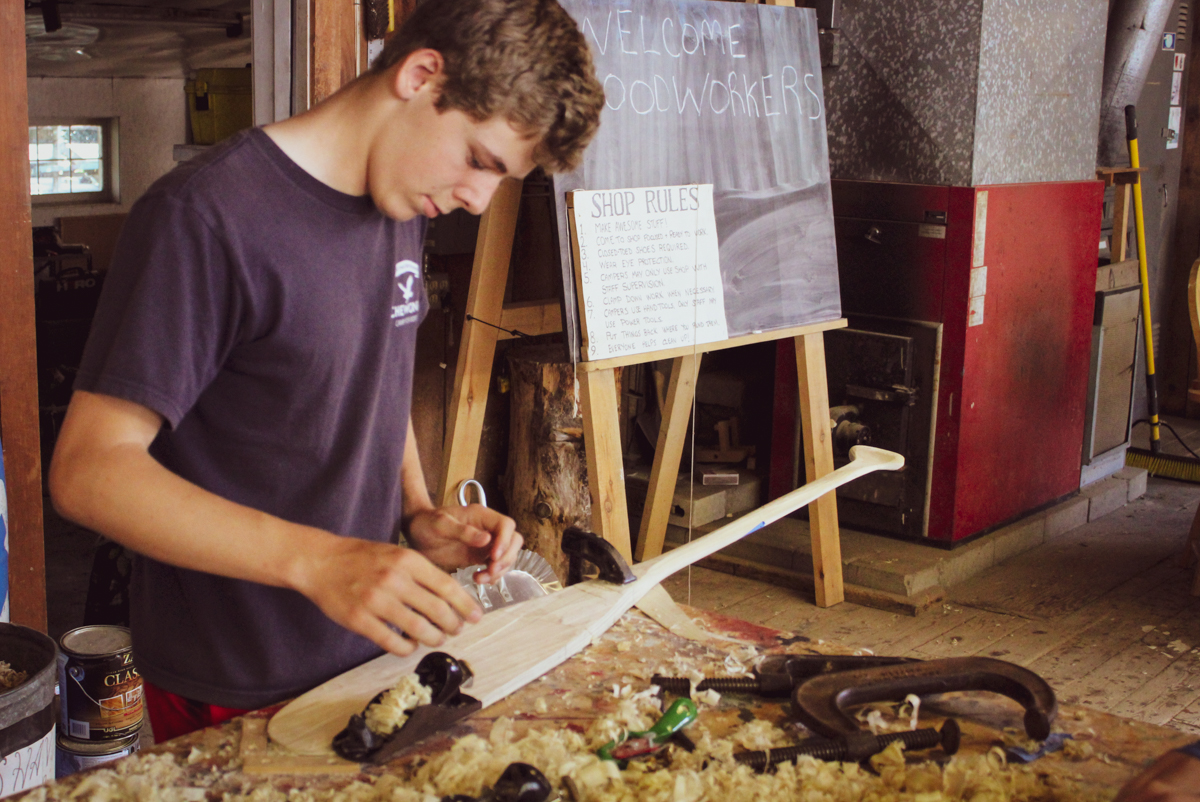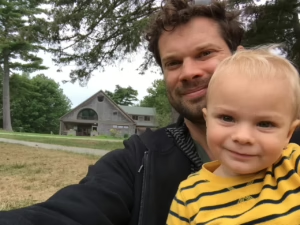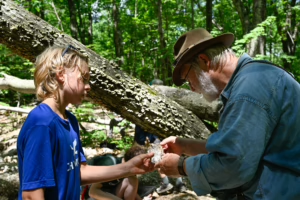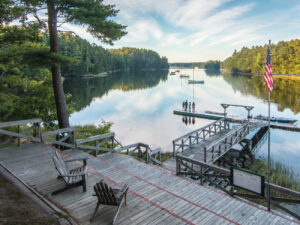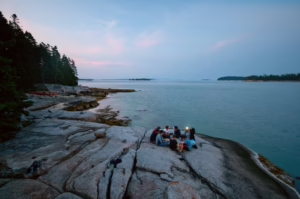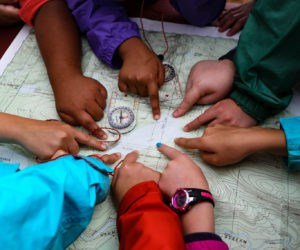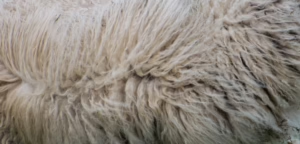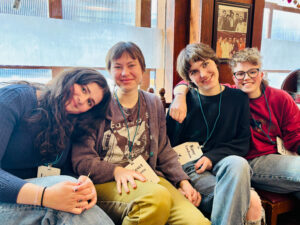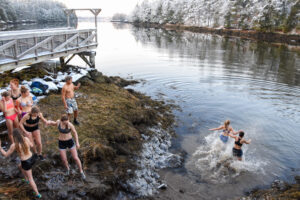Just as they have done every summer for more than a century, Camp Chewonki boys are hard at work in the Wood Shop. A group of Ospreys (our oldest campers) bend over the paddles they are making, using spokeshaves and block planes to sculpt the wood.
“They’ve put in about six hours to get to this point,” says Orville Mooney, BS, MA, VET, Maine Guide, WL, facilities team member, carpenter, and this summer’s undisputed boss of the Chewonki wood shop. “They’re doing great. After today, all they’ll have to do is sand and put on a layer of polyurethane.”
The Wood Shop feels a world away from camp’s boisterous center, although it’s just down the driveway, not far from the farm. There’s a lot going on here but there is also the underlying peace of people wholly, happily engaged in their work. The boys have everything they need: materials, tools, camaraderie, and a teacher who loves what he and they are doing.
The shop is somewhere between a well-organized barn and a cluttered artist’s studio. There is a place for everything, but only the initiated know where and why. Tools, photographs, posters, and other mementos from past years ornament the walls. This is a place full of history.
In the Pattern Closet are hundreds of flat wooden templates marked with their purpose: paddle designs; spoon patterns; shapes for making birdhouses, toy boats, bat boxes, cabin plaques–all kinds of objects templates that campers use to create or get a good start on while they are at camp.
Wood Shop is a legacy activity at Chewonki, something founder Clarence Allen deemed important in the camp’s very first years. Why? Perhaps because woodworking puts people in direct contact with trees. Perhaps because it is aesthetic as well as practical. It celebrates tradition and innovation; hand craftsmanship and technology. It combines precise skills such as measurement and safety procedures with less tangible skills valuable forever: listening, respect, patience, concentration, self-discipline, humility, persistence.
“I’ve been very impressed with the campers’ commitment to their projects,” says Mooney. “Even when the work gets tiring, they are sticking with it…And they’re taking pride in their work.”
Part of the allure is “knowing that you will have made something yourself,” says camper Colin Clough. Across the workbench, fellow Osprey James Decker agrees: “I really like the idea of being able to tell people I made this paddle,” he says. With their own hands, they are creating something useful that will remind them of this summer each time they pick it up.
Some campers come to the Wood Shop already familiar with the tools and wood. For many, this is an introduction to what can become a lifelong interest.
Mooney got a head start as a child fiddling at his uncle’s workbench and developed his carpentry skills as he matured. He has built houses, teardrop campers, and countless smaller projects. He is known around Chewonki for his sense of humor and wide range of life experiences: he is a graduate of the Maine Maritime Academy; served in the Navy for nine years; and has a master’s degree in nonprofit management.
“Of all the trades I’ve ever done, carpentry is the one that keeps challenging me,” says Mooney. “I will never get to perfection.” That’s part of why he loves it and part of why he is happy in the Wood Shop with these hard-working Chewonki campers, striving for perfection.
Note: Camp Chewonki for Girls also offers interested girls woodcrafting opportunities, including paddle-making at our Fourth Debsconeag Lake site.
